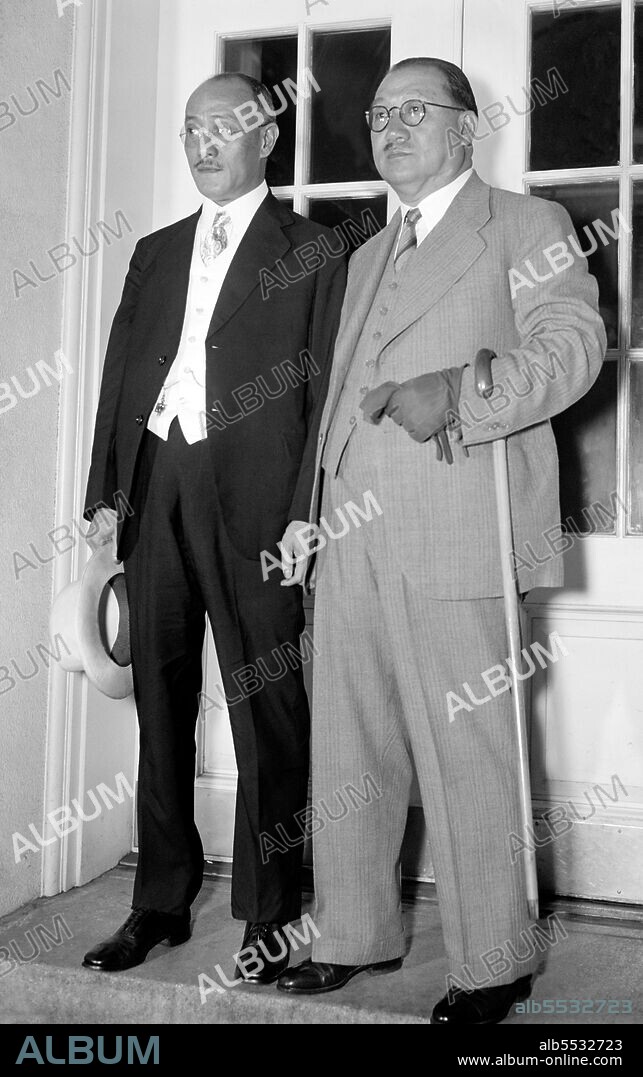alb5532723
China / USA: Dr H. H. Kung (1881-1967), Premier of the Republic of China 1938-1939 (right) with Chinese Ambassador to the USA Dr. Chenting T. Wang (left), Washington, June 29 1937

|
Zu einem anderen Lightbox hinzufügen |
|
Zu einem anderen Lightbox hinzufügen |



Haben Sie bereits ein Konto? Anmelden
Sie haben kein Konto? Registrieren
Dieses Bild kaufen

Titel:
China / USA: Dr H. H. Kung (1881-1967), Premier of the Republic of China 1938-1939 (right) with Chinese Ambassador to the USA Dr. Chenting T. Wang (left), Washington, June 29 1937
Untertitel:
Siehe automatische Übersetzung
Kung Hsiang-hsi (Chinese: ???; pinyin: Kong Xiángxi; Wade–Giles: K'ung Hsiang-hsi; September 11, 1881 – August 16, 1967), often known as Dr. H. H. Kung, was a wealthy Chinese banker and politician of the mid 20th century. He was highly influential in determining the economic policies of the Kuomintang (Nationalist) government in the 1930s and 1940s. He was known as the richest man in China at that time. Kung was an early supporter of Sun Yat-sen, and worked with Wang Jingwei before serving in the government of Chiang Kai-shek. Kung began his career in the government of the Republic of China as the Minister of Industry, holding this position from 1927-1928. Kung joined the central executive committee of the Kuomintang (KMT) in 1931. He served as Premier of the Republic of China from 1 January 1938 – 20 November 1939. Kung then served as the Vice-Premier of the Executive Yuan, from 1935-1945. Dr. Kung served as China's Chief Delegate to the International Monetary & Financial Conference in 1944, where he signed the Bretton Woods Accord during the Bretton Woods Conference at the Mount Washington Hotel, New Hampshire, in the United States. This conference established the International Monetary Fund (IMF) and the International Bank for Reconstruction and Development (IBRD), which today is part of the World Bank Group. Kung first married Han Yu-mei in 1910, but she died in 1913. In 1914 Kung married his second wife, Soong Ai-ling, the eldest of the Soong sisters. This marriage made Kung the brother-in-law of Soong Mei-ling, the wife of Chiang Kai-shek.
Bildnachweis:
Album / Pictures From History/Universal Images Group
Freigaben (Releases):
Model: Nein - Eigentum: Nein
Rechtefragen?
Rechtefragen?
Bildgröße:
2350 x 3743 px | 25.2 MB
Druckgröße:
19.9 x 31.7 cm | 7.8 x 12.5 in (300 dpi)
Schlüsselwörter:
 Pinterest
Pinterest Twitter
Twitter Facebook
Facebook Link kopieren
Link kopieren Email
Email
